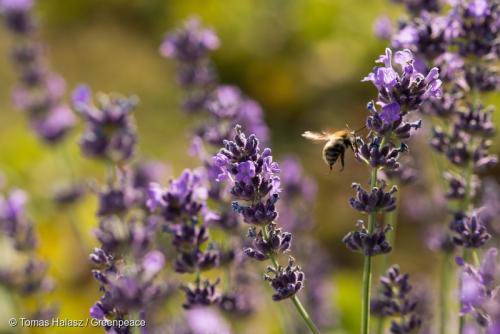EFSA confirms pesticides danger to bees
National governments must now back EU neonicotinoid ban, says Greenpeace
Three widely used neonicotinoid pesticides are a danger to bees, according to a report released by the European Food Safety Authority, EFSA, on February 28.

Based on a review of over 700 studies on imidacloprid, clothianidin and thiamethoxam, EFSA confirms that these chemicals pose high risks to bees, and that EU restrictions imposed in 2013 are insufficient to control these risks.
Franziska Achterberg, Greenpeace EU food policy adviser, said: “The evidence is overwhelming that bees, and the crops and plants they pollinate, are at dire risk from neonicotinoid pesticides. National governments must stop dithering and back the proposed EU neonicotinoid ban as the first step to prevent the catastrophic collapse of bee populations.”
In March 2017, the European Commission proposed a ban on the three neonicotinoids, except when they are used in greenhouses. National governments will vote on this measure on 22 March, following the postponement of a vote in December 2017.
The review of the scientific evidence is a result of partial EU restrictions, introduced in 2013, on the use of the three neonicotinoid pesticides in agriculture. It follows five EFSA reports in 2015 and 2016, which consistently highlight the dangers these pesticides pose for managed honeybees and wild bees.
Source: Greenpeace European Unit
- 317 reads
Human Rights
Fostering a More Humane World: The 28th Eurasian Economic Summi

Conscience, Hope, and Action: Keys to Global Peace and Sustainability

Ringing FOWPAL’s Peace Bell for the World:Nobel Peace Prize Laureates’ Visions and Actions

Protecting the World’s Cultural Diversity for a Sustainable Future

Puppet Show I International Friendship Day 2020

